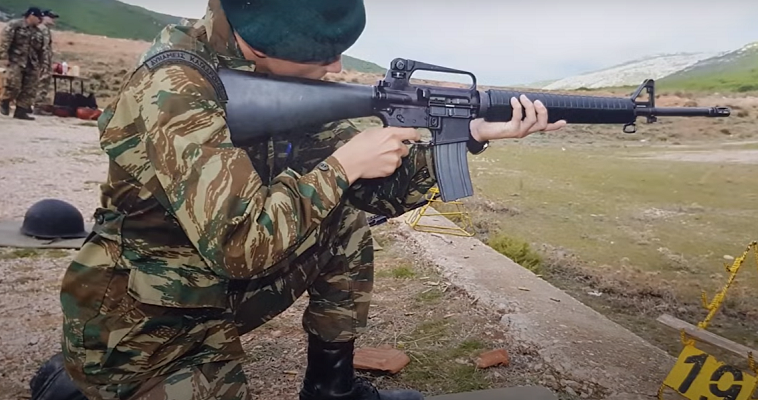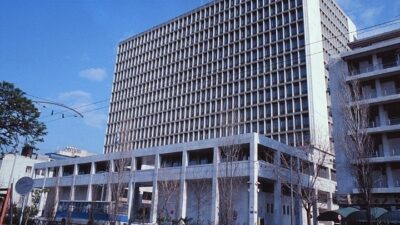Heraklis Roupas: Military service: Do as Israel does
25/07/2020
The crisis we are experiencing today with Turkey must put us in thoughts about a total change of mentality. We must all now address the issues of conscientious participation of all of us in matters of national security and military service. The issue of compulsory military service has been discussed for years, but in purely operational terms but on the wrong basis.
This is the reason why the whole approach has not created conditions for a comprehensive approach to the issue of conscription both in a period of “calm” and in times of crisis, highlighting positive implications in a wide field. Whether the transformation of the army into a professional provides the opportunity to discuss the time of enlistment of young people (or even their non-enlistment), in periods of “calm” is a key parameter of policy and approach only (unfortunately for the sake of voting).
After all, it is no coincidence that before every election, the issue of reducing military service returns to the forefront. Highlighting in this way the wrong message on such a sensitive issue. A message that has become entrenched in the perception of both parents and young people that the army is a chore. A counterproductive waste of time! But who is responsible for this wrong assessment?
Everyone for many years has avoided cultivating a different view of what military service can offer as a national institution, other than training as “soldiers”, all those who do not pull strings to serve in some office near their home? Planning, as it has evolved over time, unfortunately tends to view conscripts as a basically just in a support role at best (with the exception of those serving in the special forces, or the frontier).
The example of an expatriate
It ignores the multilevel dimensions (economic and social) of a more substantial activation of the conscripts, combined with the necessary increase in military service. Any approach to the issue arises only after crises, as in recent decades (with the exception of the current period) the discussions have revolved mainly around the reduction of the term, rather than the restructuring and the more effective management of the personnel of the military.
The choice of all governments over time was not to raise this issue, because of the high political costs that an increase in term of service would entail. Although such a view may have had some basis, no one has ever publicly raised the issue of a comprehensive restructuring of the conscription philosophy.
I recently read about an expatriate, the son of Greek immigrants from Harrisberg, Pennsylvania, who today is the only expatriate serving in the Evzones, the Presidential Guard. Perhaps one of the few who chooses to serve this (even foreshortened) military service in the country of his ancestors. He wanted to serve in the unit that his grandfather had served in!
This a far different mentality from those whose first thought to find a way to pass time as painlessly as possible, when called upon to serve. Somewhere close to home and maybe even an office! Even today, when the term is only nine months, but the problems with Turkey are on knife’s edge. The issue of military service is therefore multifaceted and complex. Recent incidents in Evros have demonstrated the vigilance (as always) of the inhabitants of the border areas.
Evros was just the beginning
The rest of us just watched, unaware of crises, as the quiet period was lengthy until now. But this must gradually change. The crisis of Evros was only the beginning. International developments with the constant change of foreign policy doctrines of most countries, combined with the geostrategic position of the country, require a new approach. A philosophy of conscription more in line with Israel and Switzerland.
Throughout the discussion the parameter that is rarely mentioned is the potentially positive socio-economic implications that can emerge through a different approach to military service. The truth is that the term of service must be increased. But everyone must serve without exception, without bureaucratic or legal loopholes. But the time of service need not be wasted.
It is possible for the recruitment process to combine weapons training with productive project delivery. Providing social work to the local communities of the areas they serve, or in their place of origin, regardless of whether there is a camp. In this way, the bonds of the citizens are strengthened, while at the same time all young people are in contact with the problems that require social work.
Incentives like in Israel
Providing incentives to second-generation Greeks abroad to come to serve (as is the case in Israel) could be the first sign of change. By providing incentives, after the completion of their term and the development of some activity parallel to their country. They can be financial benefits for holidays and hospitality of their children in camps, or subsidized ticket for their parents, as well as guaranteed accommodation for those who will visit the soldiers.
In addition, it may provide for the selection of military scientists as members of scientific and research working groups after the completion of half of their term of service. The creation of a team of military scientists in collaboration with the universities for the development of state-of-the-art technology systems and their maintenance after their tenure in sector of the defense industry (which must finally begin to “exist”)!
The goal must be to change the impression that the army (for the majority of those who actually serve without pulling strings), is just guard duty, meals and some exercises, and to do so through actions. As for draft dodgers and the “media”, a radical change in the relevant legal framework is required so that we can claim that conscription is a national institution, where everyone is and is treated as equal.





